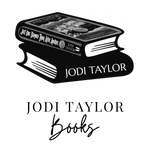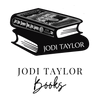History, True or False?
OK everyone – hope you’re all well and hanging in there.
Something quite serious today.
History and how important is it in our lives?
When I first started writing, back in 2011/2012 there was no such thing as Fake History. Yes, there was ‘spin’ of course, as politicians attempted to persuade us to regard their most recent disasters in a more favourable light, but most of us just laughed and went on our way.
It seemed to me while writing Just One Damned Thing After Another that I had to give historians a good reason for doing what they do – other than because they have a happy mix of every personality disorder known to man and a near terminal death wish, of course – so I simply had Dr Bairstow vaguely say that it was always important to know the truth. The often-inconvenient truth – not the religious, politically correct, politically expedient, written by the victors truth, but the real truth. Everyone at St Mary’s solemnly nodded their heads and cantered off to wreak more havoc on the already battered timeline.
It never occurred to me – not in a million years – that in such a short time we would move into the realms of real Fake History. Where sometimes the events of only last week could be denied/altered/ignored/misrepresented and so on. Right in front of our eyes, sometimes.
I was scribbling away the other day – a scribble a day keeps the electrodes away – and thinking about this because it’s a small part of the plot in Another Time – Another Place (the next St Mary's book). It seemed to me that because we can’t always trust our leaders – bless them – it is essential to know the truth.
And then – because I was born to argue – I thought, actually, is it? How important is it to know the truth?
Consider – Country A and Country B. They’re nice little countries, quite well off as countries go and the people are pleasant and friendly and you’d really like them if you ever met.
Except – they’ve been at war since the year dot. The history of all the military engagements is taught at school. Each side instructs their people not to trust the other. That they’re a bunch of treacherous fanatics who would sell their own grandmother if it suited them. Each side is brought up hating the other. They don’t fight all the time, of course, but every now and then it flares up – it’s the anniversary of the famous Massacre of Town C – conveniently ignoring the fact they lose more citizens in a week to road traffic accidents than to the supposed massacre which might never actually have occurred – and off they go again on the Treadmill of War.
Could it be argued that without a knowledge of previous history the inhabitants of each country would encounter each other with open minds and possibly quite like each other? The events of the past would literally be lost in the mists of time and without the Millstone of Memory around their necks, would they stop blowing each other to pieces and build trading and cultural relationships instead?
Or should we always remember our past? And if we do, are we intelligent and tolerant enough to rise above it?
Or should we actively change our past? Should the films and books of Countries A and B show them as equal and honourable partners, not only treating each other with respect now, but in the past as well. Wishful thinking, I know, and dangerous, too but does this give them something to aspire to?
Or would that be dishonouring all those who died in the conflict? Is this sweeping war and death under the carpet? As Max says, ‘Looking away when bad things happen does not mean that bad things cease to happen?’
Should their cultures reflect the way they wish things were – or the way they actually are? And if the latter – how do they move on?
If everyone from A and B woke up one morning with their memories erased – would this be such a bad thing? Is it ever acceptable to change history? I don’t just mean politicians spinning events to make things seem if not better, then at least less bad, but actually erase or rewrite history? Given that we seem doomed to repeat the same mistakes over and over again, what would happen if we were able to sever our link with the past and look only forwards? Or will we always find something to fight about?
On the other hand – did I mention I was born to argue? – if real history is to be swept aside who is to say what should replace it? A carefully edited version that everyone would be comfortable with? And if so, how long until someone dreamed up a better version and it’s replaced again. At least the old ‘warts and all’ history had one virtue – that of truth.
So – does history serve a useful purpose? Does it enable us to learn from our mistakes? Or is it actually a major factor in the never-ending wars of our species? Would we be better off without it?









I think we cannot forget history but that doesn’t mean we cannot learn from our mistakes. I agree with doctor bairstow on this.
I too agree with Dr. Bairstow, ( after all who would dare disagree?). Sadly, it seems as though some political leaders today, (not naming names), can plant fake news even when the real facts are right there in front of us….and yet the fake information is still believed by some. It’s often well after the events are long in the past that we can read about what really happened…..and even then it’s not always clear…think Richard III & the number of books taking the same information & coming to different conclusions. Can’t wait for the next St. Mary’s book!!
For some reason, reading the amnesia scenario forcibly reminded me of The Lathe of Heaven, specifically the part where a wish to end racial strife resulted in a world where everyone was beige. It didn’t work, as people will always find some reason to disagree, whether it be patriotism, religion, or their preferred football club. Rather than saying I’ll side with Bairstow, I’d say I side with Clio: some versions of history are more “correct” than others, and those belong on the Time Map. Which versions are “correct”? Don’t ask me, I haven’t had my tea yet.
Very thought provoking as usual Jodi! IMO I believe it is better to know ‘the truth’ than not even knowing that it truly does depend on which truth you are talking about! As you have shown in your books the truth of any event depends on who is recording it. That being said I do believe it is better to perhaps have 2 versions rather than none and let us as intelligent people read both and do our best to discern what’s accurate which is usually somewhere in the middle :)
A cracking read Jodi, thank you. History can be such a weight around each generations’ shoulders. Take World War 2 – in the UK we have massive commemorations or celebrations in some years that have a 0 or a 5 in them and yet through my family and career I have never yet met a veteran who wanted anything other than a quiet remembrance each year in November. Who demands all this? Probably our politicians who want to look good. Why do I think this is important? Because it dominates our country. Tales of the Empire (never the bad things of course, stripping out of assets or imposition of an alien culture for example) allied to two world wars (note ‘world’ – we never at any time fought these alone) seem bone deep in our national psyche. It means that, as a country, we seem to be forever looking back, mythologising our past and wanting to be there again, be great again. Dwelling in the past stops us reaching for a better future. It affects the way we look at environmental matters, politics, inter generational relationships, and so much more. Our (UK) history should be respected, weighed in the balance (by making ourselves aware of who wrote it and their motives) but not dominate the way we portray ourselves to the world or stop us creating a better history in our future.
Apologies for the rant (and I know many, many people will disagree). I love history in both fictional (thank you Jodi) and factual forms, though sometimes it’s difficult to tell the difference. Finally, on a different tack, for anyone interested in how history could have been so different if it had not been written by men I thoroughly recommend Mary Beard’s book ‘Power’!
Leave a comment